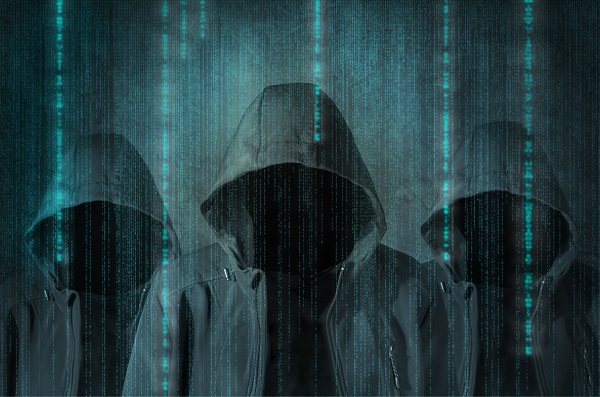APS Backgrounder Series: Psychological Science and COVID-19: Conspiracy Theories


For more details, listen to the APS Podcast on Psychological Science and Conspiracy Theories in the Era of COVID-19.
Expert commentary from Karen Douglas, professor of social psychology at the University of Kent, UK, whose research focuses on beliefs in conspiracy theories. Why are conspiracy theories so popular? Who believes them? Why do people believe them? What are some of the consequences of conspiracy theories and can such theories be harmful?
What are the principal characteristics that define a conspiracy theory?
A conspiracy theory is an attempt to explain the ultimate cause of a significant event or situation as the result of a secret plot by a powerful group. Conspiracy theories are often about the actions of governments, but they can accuse any group that is perceived to be powerful and malevolent. For example, conspiracy theories about the 9/11 terror attacks have accused not only the US government but also other groups such as the Saudi government, corporations, and Jewish people. Conspiracy theories about climate change have accused climate scientists, the United Nations, and the oil industry, among others.
What does psychological science tell us about why certain people embrace conspiracy theories?
The psychological research to date suggests that people are attracted to conspiracy theories when important psychological needs are unsatisfied. The first of these are epistemic needs. Specifically, people are looking for knowledge and clarity about important events. Indeed, research shows that people are more likely to believe in conspiracy theories under conditions of uncertainty. The second set of needs is existential. Specifically, people need to feel secure and in control of their surroundings, and research indeed shows that people who feel that they lack agency and power are more likely to believe in conspiracy theories. The final set of needs is social. That is, people need to maintain a positive image of themselves and the groups they belong to. Some evidence to support this is that people who experience a strong need to feel unique compared to others tend to show greater belief in conspiracy theories.
All of these needs are likely to be heightened in times of crisis, such as the COVID-19 pandemic. Whether or not these needs are satisfied by believing in conspiracy theories is another matter, though, and research suggests that believing in conspiracy theories is not a very good coping mechanism. To give one example, instead of increasing feelings of power, conspiracy theories seem to make people feel more powerless.

Conspiracy theories that deal with public health can have serious negative impacts on society. How does this relate specifically to COVID-19?
Conspiracy theories can indeed have negative consequences for public health, especially in the area of vaccination where research shows that people who believe and even just read about anti-vaccine conspiracy theories are more vaccine hesitant. Conspiracy beliefs have been linked to other risky health behaviors such as a reluctance to practice safe sex.
The COVID-19 pandemic seems to have provided fertile ground for conspiracy theories, and I believe that these could be harmful too. If people believe that the virus is a hoax, they might be less likely to take preventive measures such as social distancing in public places, hand-washing, and working from home when possible. Conspiracy believers, who are often very mistrustful of science and conventional medicine, could also be more likely to try alternative remedies that are at best useless, and at worst fatal.
Recent cases of violence have also been linked to COVID-19 conspiracy theories. For example, one conspiracy theory argues that COVID-19 was designed in a Chinese laboratory as a bioweapon against the West. There have since been reports of racial attacks on people of East Asian appearance. Another conspiracy theory argues that 5G technology caused COVID-19. On the back of this conspiracy theory, there have been multiple attacks on engineers installing 5G masts.
What are the most relevant psychological science findings the public should know and understand?
Conspiracy beliefs appear to be a response to unmet psychological needs. We all experience these needs at some time or another, so we are all “conspiracy theorists” to some extent.
Conspiracy theories have significant consequences. They are associated with vaccine hesitancy and other risky health choices, climate denial, violence, crime, and prejudice. They should not be dismissed as harmless fun.
What is the one message people should know about conspiracy theories during this crisis?
Conspiracy theories are important to study because they can have harmful consequences. While people are drawn to conspiracy theories to cope with difficult circumstances, they seem, if anything, to make things worse.
Human behavior is one of the most important factors dictating the severity of pandemics for both the spread of the disease and the psychological impacts it triggers, such as anxiety, isolation, and uncertainty. Through an ongoing series of backgrounders, the Association for Psychological Science (APS) is exploring many of the psychological factors that can help the public understand and collectively combat the spread of COVID-19. Each backgrounder features the assessments, research, and recommendations of a renowned subject expert in the field of psychological science. This content has not undergone separate peer review and is provided as a service to the public during this time of pandemic. APS has published additional content on Myths and Misinformation.
Are there any published articles that are particularly insightful on these topics?
Douglas, K.M., Uscinski, J., Sutton, R.M., Cichocka, A., Nefes, T., Ang, J., & Deravi, F. (2019). Understanding conspiracy theories. Advances in Political Psychology, 40 (S1), 3-35. https://doi.org/10.1111/pops.12568
Douglas, K.M., Sutton, R.M., & Cichocka, A. (2017). The psychology of conspiracy theories. Current Directions in Psychological Science, 26, 538-542. https://doi.org/10.1177%2F0963721417718261





Comments
FYI only:
APS is also an abbreviation for Antiphospholipid syndrome, an autoimmune blood clotting disorder in the lupus family.
I have a severe case, and was doing a search, and found this- happily! We are in Texas… a state rife with confused folks right now.
Our daughter is a climate scientist/ post doc research at a Princeton currently. She could use your findings to help her fellow Texan “climate change deniers.”
I’ve now taken to also calling them , “ virus deniers.”
Yours truly, APS victim in virulent Texas. ( many of us are extremely reasonable not to worry! )
APS regularly opens certain online articles for discussion on our website. Effective February 2021, you must be a logged-in APS member to post comments. By posting a comment, you agree to our Community Guidelines and the display of your profile information, including your name and affiliation. Any opinions, findings, conclusions, or recommendations present in article comments are those of the writers and do not necessarily reflect the views of APS or the article’s author. For more information, please see our Community Guidelines.
Please login with your APS account to comment.